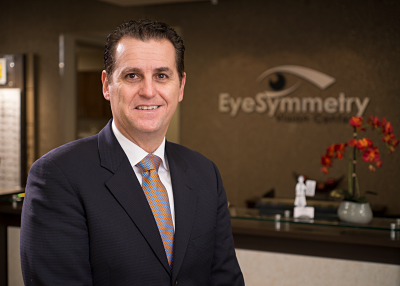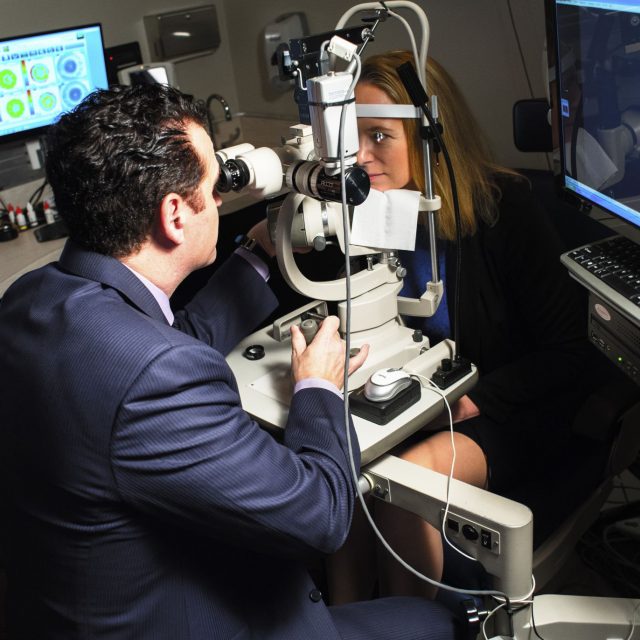Dr. Moshe Schwartz, O.D., F.A.A.O.
Contact Lens Specialist Baltimore
Dr. Schwartz earned his Doctor of Optometry degree from the Nova Southeastern University in Florida and has been in private practice since 1997.
He is a Diplomate in Cornea, Contact Lenses, and Refractive Technology of the American Academy of Optometry. Becoming a Diplomate in the Academy demonstrates that one is an expert in their discipline, this 5-year review process is the highest clinical designation in the field of optometry and is achieved only after a grueling series of written, practical, and live patient examination testing by his peers.

There are around 120 diplomates worldwide and he is one of three optometrists in Maryland who has achieved this milestone. He has lectured nationally and internationally on contact lenses and refractive technologies. He is an active member of the College of Vision Development (C.O.V.D.)
Dr. Schwartz spent a year at John’s Hopkins University School of Medicine’s Wilmer Eye Institute as a Pediatric Optometrist and actively participated in the Baltimore Pediatric Eye Disease Study.
He is a faculty member of the Chicago College of Optometry as an Adjunct Clinical Assistant Professor in Midwestern University College of Optometry.
Dr. Moshe Schwartz is currently member of the GP Lens Institute Advisory Board and also serving on the GPLI Contact Lens Specialty Practice committee.

